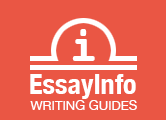The purpose of an expository essay is to present, completely and fairly, other people's views or to report about an event or a situation. Expository writing, or exposition, presents a subject in detail, apart from criticism, argument, or development; i.e., the writer elucidates a subject by analyzing it. Such writing is discourse designed to convey information or explain what is difficult to understand. Exposition usually proceeds by the orderly analysis of parts and the use of familiar illustrations or analogies.
Such an analysis requires
- reading with understanding the ideas developed in an article by clearly stating another's thesis, outlining the facts used by the author to support that thesis, and the "values" underlying the ideas
- putting what is read into a larger context by relating another's article or book to other work in the field
- clearly and effectively communicating this information to a defined audience. In other words, you must write clearly and fully enough for your readers to know how you have arrived at your analyses and conclusions. They should never have to guess what you mean; give your readers everything they need to know to follow your reasoning
This practice is not "just for students." Accurate analysis is a fundamental professional activity in almost all careers. Like any other fundamental skill, it must be constantly practiced in order to maintain and improve it. Other goals, such as learning "time management" and note-taking, are also developed by this activity.
Do not be afraid to revise your essay! In fact, you will probably want to change it at least once; this is called "thinking through a 'problem'" or "learning."
The revisions will consist of the following:
- finding the precise words to express your thoughts
- correcting typographical, spelling, and grammatical errors
- making sure that your paragraphs are "tight" and sequenced properly
- making sure that the transition ("segue") from one major topic to another makes sense
Expository essays also have a distinct format.
The thesis statement must be defined and narrow enough to be supported within the essay.
- Each supporting paragraph must have a distinct controlling topic and all other sentences must factually relate directly to it. The transition words or phrases are important as they help the reader follow along and reinforce the logic.
- Finally, the conclusion paragraph should originally restate the thesis and the main supporting ideas. Finish with the statement that reinforces your position in a meaningful and memorable way.
- Never introduce new material in the conclusion.
Here are some popular essay topic examples for expository essay type:
- Explain Three Main Interpretations of Green Marketing
- Explain How Fashion Changes in 1920 Influenced Fashion Trends Today
- Explain Major Ecological Changes
- What is Love
- Explain the Consequences of Nationalism
Choosing the essay topic you are familiar with will help you to write a successful expository essay.

